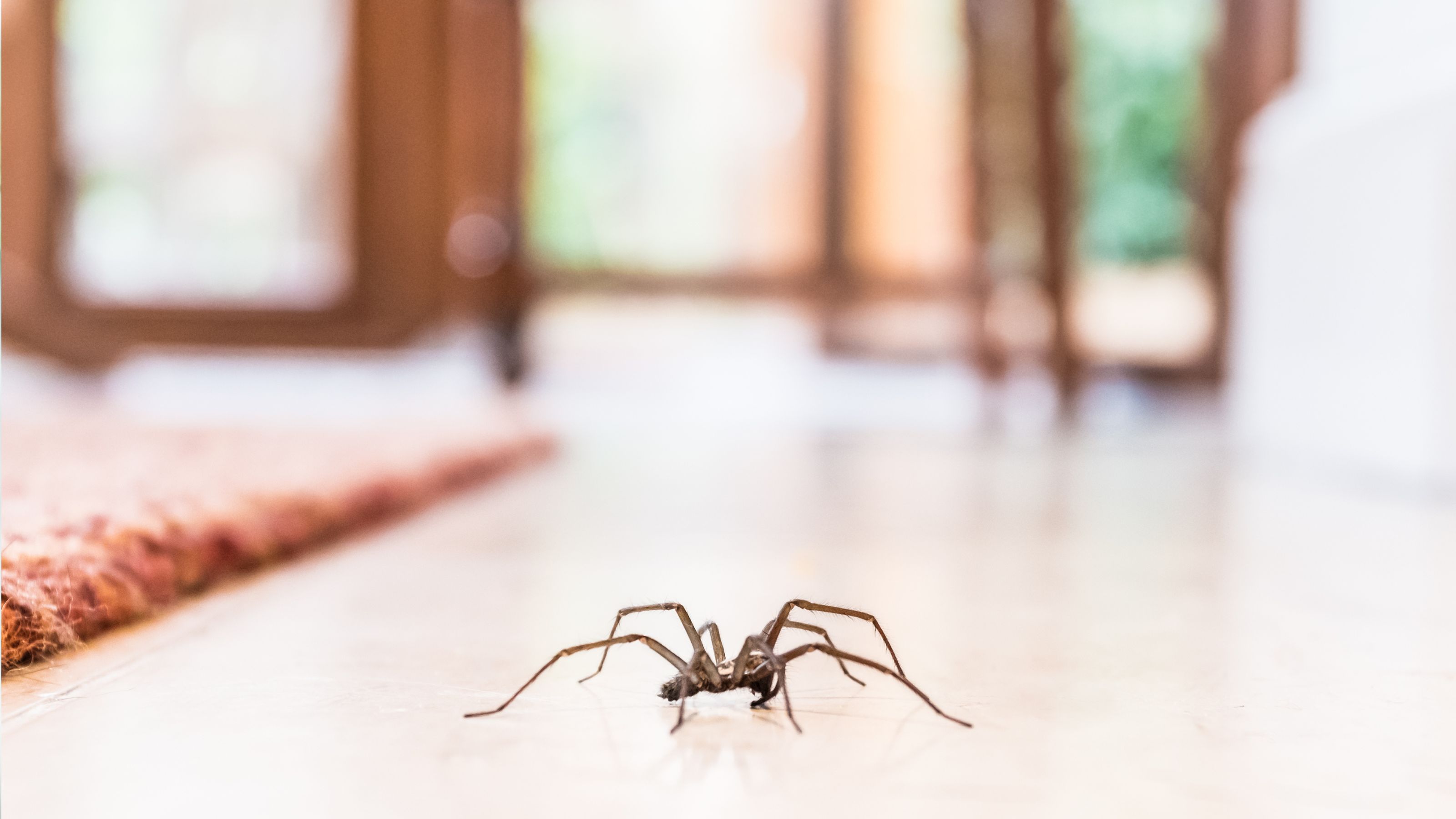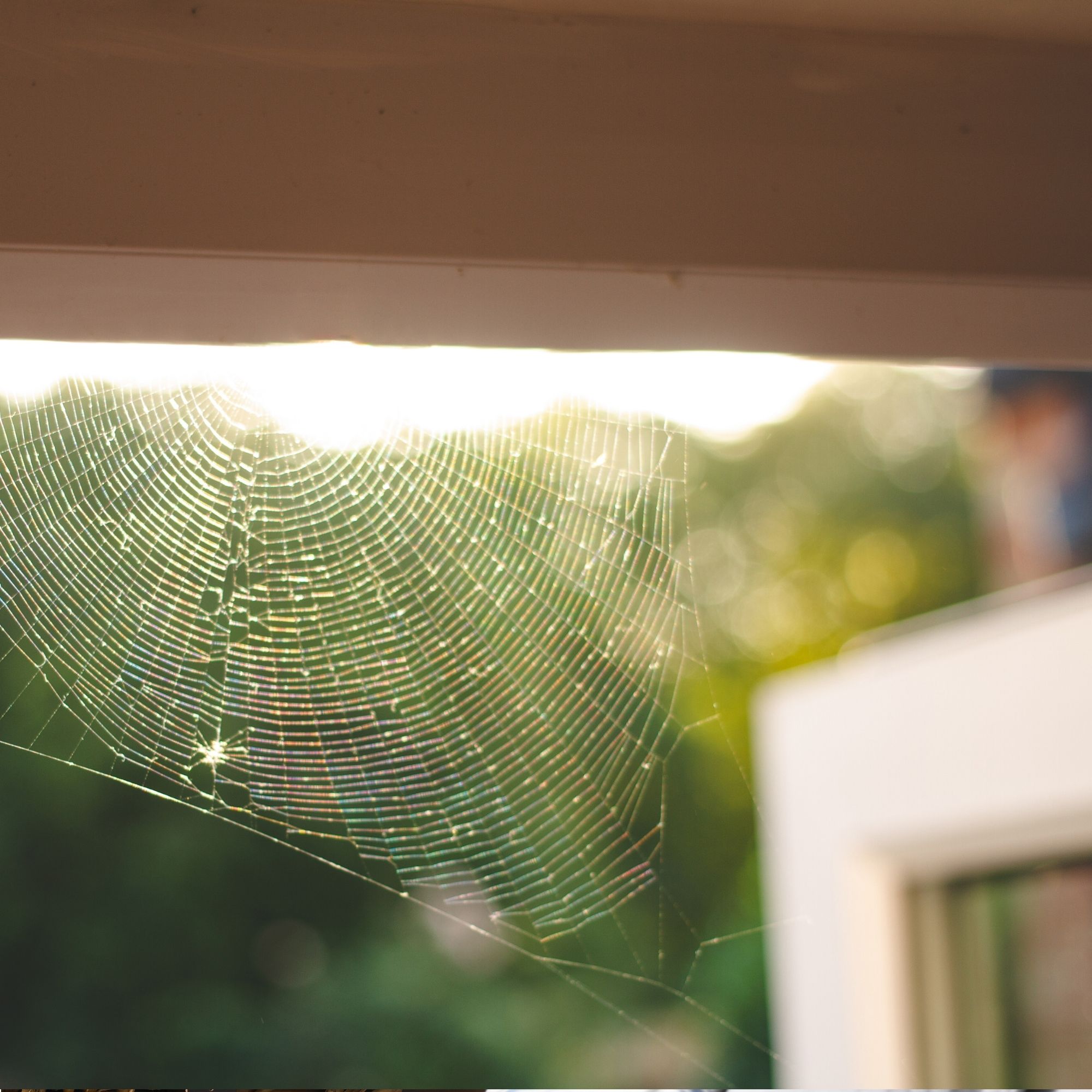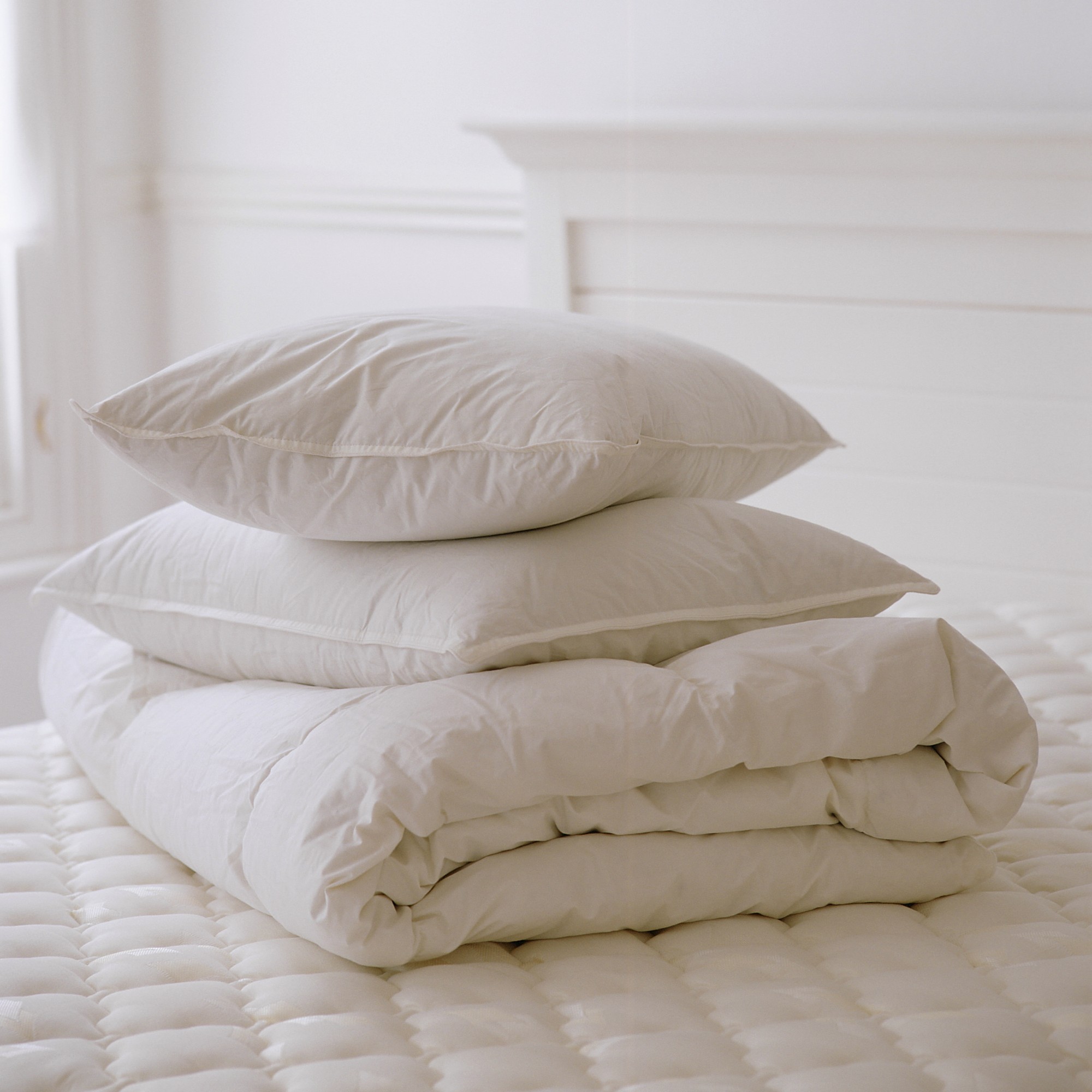Are you about to find spiders in your bed? It's time to face facts this spider season
September and October belongs to the spiders – but what do they really want from us?


Sign up to our newsletter for style inspiration, real homes, project and garden advice and shopping know-how
You are now subscribed
Your newsletter sign-up was successful
'Why are spiders in my bed?' is the sort of question that nobody wants to type into Google – not unless they really have to, that is.
Still, autumn often sees us abandon our never-ending quest for gorgeous bedroom ideas in a bid to learn the truth about the apparent influx of spiders in our homes.
But are spiders really drawn to our bedrooms? And, if so, how can we convince them that our beds and mattresses aren't the best place to set up shop... we mean, web?
... but why ARE spiders in my bed?!
First things first, some reassurance: it is a falsehood universally acknowledged as fact that we swallow an average of eight spiders a year while asleep.
'Spiders probably find sleeping humans terrifying,' reads an article on Scientific American. 'A slumbering person breathes, has a beating heart and perhaps snores – all of which create vibrations that warn spiders of danger.'

As such, it's unlikely that spiders will be traipsing all over your bed – but not impossible. This writer, for one, once woke to find a huge house spider on her very best pillow beside her and has never vacated a bedroom quite so quickly before!
With that image burning in our minds, then, let's try to figure out the truth behind our eight-legged roommates. Once and for all.
Sign up to our newsletter for style inspiration, real homes, project and garden advice and shopping know-how
When is spider season in the UK?
We've said it before and we'll say it again: autumn has been dubbed spooky season for a reason.
'Spiders tend to become more prevalent in homes during September and October due to a combination of environmental factors and their natural life cycle,' explains Rhodri Irranca-Davies, nature recovery manager at The Wildlife Trust of South and West Wales.
'Insect populations also peak in late summer and early autumn, causing increased spider activity, such as building webs.'

If you think that spiders are creeping indoors to keep warm, though, think again.
'Some spiders, like the Daddy Long-legs Spider, can't survive outside during a normal winter except, perhaps, in the very south of England,' explains Dr Geoff Oxford of the British Arachnological Society.
'However, spiders that can survive winter outside (the vast majority of spiders in Britain) have done so since long before humans were building houses in which they shelter over winter.'
Why are spiders drawn to our beds?
If you're still asking everyone 'why are spiders in my bed?' whenever there's a break in conversation, we get it – while UK spiders are relatively harmless (some can nip but they’re not poisonous!), they can still send shudders down many people's spines.
It's important to note that spiders aren't attracted to our beds per se ('Why would they be?' asks Dr Geoff), there are a few things that may cause them to scurry over.
Eating in bed, for example, can lead to crumbs. This, of course, will attract insects – and spiders love nothing more than feasting on bugs and creepy-crawlies.

If you love to display handpicked flowers beside your bed, it's worth checking them for spiders before you pop them in that vase. And, if your bed is positioned close to a window, that's another potential cause for spider activity.
'If a bed is near an open window, ballooning Money spiders may accidentally drift in and land, but certainly not deliberately,' says Dr Geoff firmly.
How to get rid of spiders in your house
In a time when 12% of invertebrates are at risk from extinction, every step should be taken to coexist with spiders. Many people, though, will likely want to learn how to get rid of spiders in the house (and stop them coming back).
'Spiders are an essential part of our ecosystem, acting as natural pest-controllers,' says Rhodri, 'but regular cleaning and decluttering can minimise potential hiding spots for spiders, and deter insects which they prey upon.'

As well as keeping rooms clean and tidy, it's a good idea, too, to brush away any webs from coving areas and around your windows as soon as you see them, which will also go a long way in making your space feel fresh and well kept.
Experts also suggest that you set to work sealing any cracks and openings around windows and doors, so that spiders don't have an entry point into your home.
'Making sure there are no gaps under doors may prevent spiders entering a bedroom from elsewhere in the house, but air circulation is important and so this may not be an ideal solution,' agrees Dr Geoff.
'However, there is no way permanently to rid a house of spiders. Many species are living just outside, in the garden or wider countryside, and will inevitably find their way in again (randomly, not by design!).'
Throw in the fact that spiders eat midges, mosquitoes, clothes moths, carpet beetles, and more, it might be worth letting one shack up in your bedroom, eh? Just make sure it's on your terms.
Should I kill a spider in my room?
While it's tempting to swat a spider when you see it in your bedroom (or anywhere in your home), the better thing to do is remove it without killing it.
'If they are in a room, or somewhere inconvenient, where they are not welcomed they should be moved to outside using the glass and card trick,' says Dr Geoff Oxford.
'Put the glass over the spider (on a wall, for example), slide the card between the spider and the wall, trapping it in the glass and take it outside and let it go.'
Rhodri from The Wildlife Trust agrees, saying: 'Relocation of spiders should be undertaken if completely necessary, making sure to place them in alternative, suitable habitats.'
Why do spiders like my bed?
Spiders are not drawn to beds (why would they be?). Still, you may have accidentally transformed your sleep space into a spider-friendly area: crumbs will attract other insects, which will in turn create a feeding source for our eight-legged friends. Best to avoid breakfast in bed henceforth, we think...
Can a spider survive being vacuumed?
Step away from the vacuum cleaner! 'It's not kind to vacuum spiders, who will dry and die in the vacuum cleaner bag,' says Dr Oxford from the British Arachnological Society.
Which spiders are most likely to be found in a UK bedroom?
Sometimes, it's a fear of the unknown which makes something scary – so taking the time to identify the spiders in your house and bedroom may help to curb your arachnophobia.
'The three most noticeable species are Large House spiders (Eratigena species), Daddy Long-legs Spider (Pholcus phalangioides) and the Mouse Spider (Scotophaeus blackwalli), but this is the same for any room in the house,' says Dr Geoff Oxford from the British Arachnological Society., noting that bedrooms are nothing special to spiders.
'Large House spiders are more likely seen in late summer and autumn, but not because they come in from outside (as is often supposed). Males, living all their lives in the house become mature and then have to leave their hidden webs to seek a female. That is when they are spotted on walls, floors and after falling into sinks and baths.'
Dr Geoff goes on to explain that 'Daddy Long-legs spiders are pretty much confined to houses and can be found in any room, festooning the upper walls and ceilings, and behind furniture, with their tangled webs.'
'The Mouse Spider belongs to the family of ground spiders (Gnaphosidae) and is the only one of this family regularly to be found in houses,' he adds. 'They are active nocturnal hunters for small moths (like clothes moths) and other insects, and so are very useful (as are all spiders). The fine, greyish hairs on its abdomen resemble mouse fur, hence the common name.'
Which spider repellents actually work?
Hardly any of the deterrents sold to repel spiders actually work.
'If you look, the online reviews of such products are either 5-star or 1-star, depending on whether the user didn't see a spider for a while after use, or they did,' says arachnologist Dr Geoff Oxford.
'This is largely a matter of chance because one doesn't spot spiders in houses all that often.'
Can you use peppermint oil to repel spiders?
'There have been no controlled, scientific studies of whether strong smells such as peppermint or extracts from conkers deter spiders,' says Dr Oxford from the British Arachnological Society..
'Certainly outside, spiders are often found on the leaves of Horse Chestnut trees and on clumps of mint,' he adds, which suggests that these home remedies may not be as effective as one might hope.

Kayleigh Dray became Ideal Home’s Acting Content Editor in the spring of 2023, and is very excited to get to work. She joins the team after a decade-long career working as a journalist and editor across a number of leading lifestyle brands, both in-house and as a freelancer.